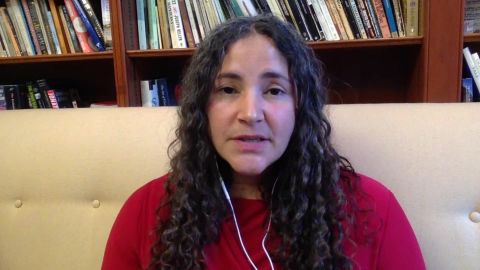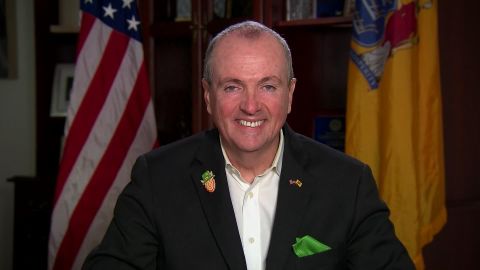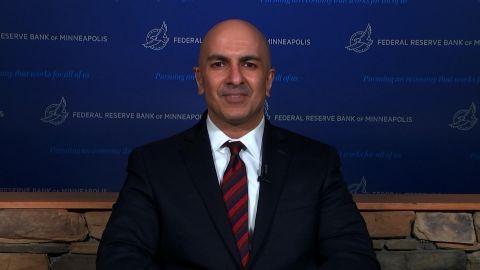Read Transcript EXPAND
DR. LAURIE SANTOS, HOST, “THE HAPPINESS LAB”: When bad things happen, we want to be together. We want to be in a crowded yoga room with other people. We want to be hugging our grandparents and visiting them at the nursing home. And for our physical health and for everyone else’s physical health, we need to not do that. If we’re going to flatten the curve and protect these valuable health care resources, we need to stay by ourselves. The good news, though, is that the science suggests that being socially isolated doesn’t necessarily have to come with feeling lonely. It doesn’t have to come with feeling socially isolated just because you’re physically isolated.
CHRISTIANE AMANPOUR: So, that’s one great thing about social media and online and being able to connect, like you’re connecting now. And people can do it via all sorts of methods using their technology. That’s one of the great things, as we try to tell young people, don’t stay on your social media for too long or your social devices. What are students being told? And, of course, you also have that phenomenally successful podcast, “The Happiness Lab.” And you have done a special episode on how to deal with this corona crisis in terms of mental health. What are the students feeling? I mean, I think they all were just told from one day to the next to leave, right?
SANTOS: Yes, I mean, I think the students are feeling devastated right now. On our campus, students had to leave over spring break, which meant that they didn’t even get to say goodbye to their friends, which would be devastating generally, but it’s particularly devastating when they’re all feeling so anxious and uncertain in the same way that all of us are feeling right now. The good news is that my students’ generation are quickly taking advantage of all these technologies that I think our generation and even older generations need to take advantage of now to protect ourselves. One thing that we know is that loneliness is also a lethal killer, just like COVID-19. Loneliness is as bad for our physical health as smoking 15 cigarettes a day. And it’s particularly devastating to our immune system. And so what we need to do now is to find ways to work to feel less lonely. And I think businesses get good at this. Here at Yale, all of my meetings are now on Zoom or on FaceTime, or we’re talking through Skype and so on. But we forget that we can engage with our social lives in the same way. You could have a FaceTime meeting where you just cook with a friend of yours. This afternoon — actually, later tonight, I’m meeting with a friend of mine who lives in Seattle. I’m on the East Coast. But we’re going to get dinner together, because that’s how you get dinner in this day and age. The key is that just feeling physically isolated can be bad enough, but we don’t also have to be socially isolated. We can use these technologies to connect with the people we care about.
AMANPOUR: And it’s actually really interesting, because I did that with my son last night. I FaceTimed him while I was eating my dinner alone in my house. He’s in the United States. And it actually made a difference. And this is at a time when some 61 percent — even before this, some 61 percent of Americans identify as lonely.
SANTOS: Yes, I think we’re already in a loneliness crisis. And the double-edged sword for the COVID virus is that the people who are most susceptible to catching this virus, folks who are elderly or folks who are otherwise physically incapacitated, they’re also the folks who are most likely to be lonely.
About This Episode EXPAND
New Jersey Governor Phil Murphy discusses efforts to limit the spread of COVID-19 in his state. Neel Kashkari, president of the Federal Reserve Bank of Minneapolis, explains the state of the U.S. economy and what the future will look like. Yale psychology professor Laurie Santos discusses how the pandemic could influence mental health across the country.
LEARN MORE


